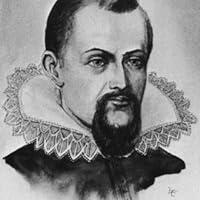
Johannes Kepler
Sobre o Autor
Johannes Kepler was a key figure in the scientific revolution, best known for his laws of planetary motion. Born in 1571 in Weil der Stadt, Germany, he was the son of a mercenary and had a troubled childhood. Despite these challenges, Kepler became a mathematician and astronomer, studying under Tycho Brahe, where he gained invaluable experience in observational astronomy. His work laid the groundwork for modern celestial mechanics and significantly advanced the field of astronomy.
Kepler's most notable contributions include his three laws of planetary motion, which describe the orbits of planets around the sun as elliptical rather than circular. This was a groundbreaking shift in understanding how celestial bodies behave. His publications, including "Astronomia Nova" and "Harmonices Mundi," emphasized a mathematical approach to understanding the cosmos, blending astronomy with music theory and philosophy. Kepler's insights not only influenced future astronomers but also had a lasting impact on the scientific method itself.